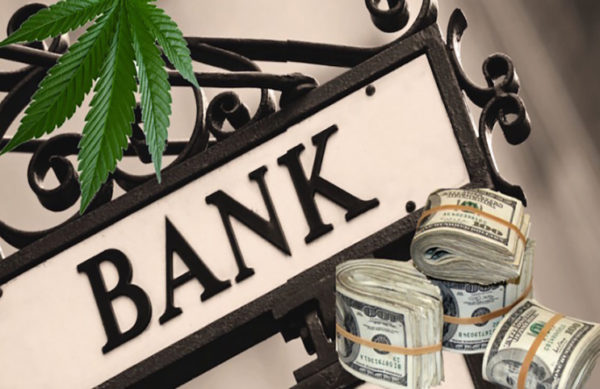The SAFE Act — Banking Safety for Cannabis/Hemp Businesses
As it stands, cannabis is still considered a class one drug by federal law. This makes receiving a bank loan very difficult for new businesses in this industry. Banks are notably risk-averse, and they are still hesitant about supporting businesses that sell cannabis products.
This line of judgment extends even to cannabis derivative businesses that have proven themselves to be profitable. Cannabis products presently make up a $12 billion industry, including sales of hemp and CBD oil. Despite this industry’s revolutionary growth in recent years, they have few banking options, making the industry harder to navigate.
However, the SAFE Banking Act could change all of this and make it easier for banks to support cannabis brands. Here’s what you need to know about this important policy.
What is the SAFE Banking Act?
To truly make progress for both banks and the cannabis industry, there needs to be federal regulation. This is what the SAFE Banking Act of 2019 aims to achieve. The terms of this bill state that federal regulators will not fine or persecute depository institutions, or banks, for supporting the sale of cannabis products in states where cannabis is legal.
The bill would essentially protect both banks and funded business owners from federal intervention. For banks, the risk of associating with businesses that sell cannabis products is significantly reduced. This support would encourage banks to offer extended credit lines for established businesses and allow new businesses to acquire the loans they need to launch a brand and encourage this profitable industry’s growth.
What Obstacles do Cannabis Businesses Currently Face?
If a business that sells cannabis products wants to find financial backing, their options are generally limited to community institutions or local banks. This is because the smaller institutions do not extend out of their own state, so federal law does not interfere. If the sale of cannabis products is legal within that specific state, then the company and bank are free to do business, with certain cumbersome regulations still in place.
However, many of these smaller banking institutions do not have the resources available to support growing businesses. This is especially true when we consider how quickly the cannabis industry is growing. It has far surpassed the current legal stipulations that apply to it.
The SAFE Banking Act seeks to modernize federal law to accommodate this increasing market.
The Legality of Cannabis in the United States
There are many derivatives of the Cannabis sativa plant which businesses then may sell. The legality of these derivatives varies greatly on both a federal level and among states and is largely decided by the level of tetrahydrocannabinol (THC) within the product.
For instance, hemp possesses low THC levels, so it is therefore classified as an agricultural product. Marijuana faces more stringent legal bindings due to its heightened THC content.
This hasn’t prevented over forty states from legalizing marijuana, in a medical and/or personal use capacity. However, federal law has not altered its class one stance on marijuana, making it difficult for business owners to access the national banking system.
What Ramifications does the Federal Classification of Marijuana Possess?
Basically, the classification prevents businesses from securing financial support from more traditional financial institutions because the organizations may face fines, or worse, from the federal government. The classification hampers access to both banks and insurance providers. Such limited access to banking can severely harm the potential of a business. It also makes the selling and purchasing of products far more difficult for consumers because interstate payment systems may also be off limits.
At present, any financial institutions that support clients in the cannabis industry can withdraw their financial backing or insurance share at any point. This makes for a profoundly unstable business practice. The SAFE Banking Act would ensure that the federal government would not force institutions to penalize their clients due to the purchase or sale of cannabis products.
Is the SAFE Banking Act Only Relevant to Marijuana?
The ‘cannabis product’ most often referred to in the proposed legislation is marijuana. This is due to the ongoing federal restrictions placed upon the product despite state-legality. However, businesses that sell other cannabis products, such as hemp or CBD oil, would benefit from the act.
Despite the legal protection provided by the 2018 Farm Bill, many financial institutions have withheld support from hemp businesses. This is largely due to the continued misunderstanding of the legality surrounding cannabis products. The SAFE Banking Act would put an end to this confusion.
How to Get Involved
The SAFE Banking Act will help provide both businesses and banks alike with the protection they need to tap into a flourishing domestic and international industry.
Call your state representatives today to ensure they show support for the bill. Growing businesses, and our economy as whole, need all the support they can get from banking institutions.
Conclusion
The SAFE Banking Act will help businesses gain financial support and start their cannabis ventures. Banks will begin to support an industry that offers potential health benefits to consumers through products like CBN.
I hope this article helped you learn more about this important bill! You can learn more about my business and finance work through my f6 site.



